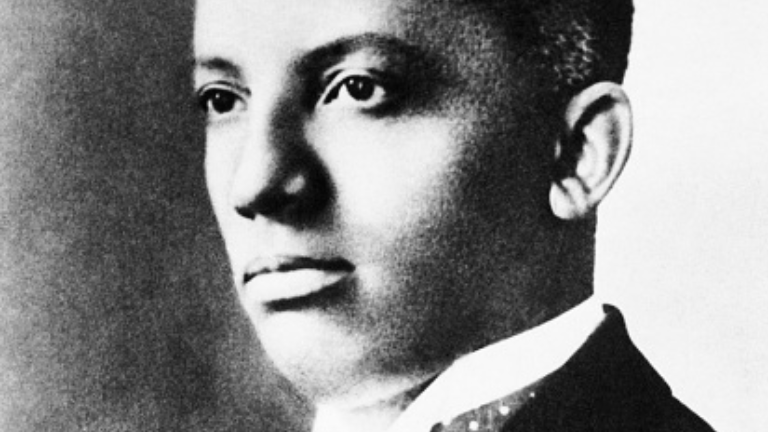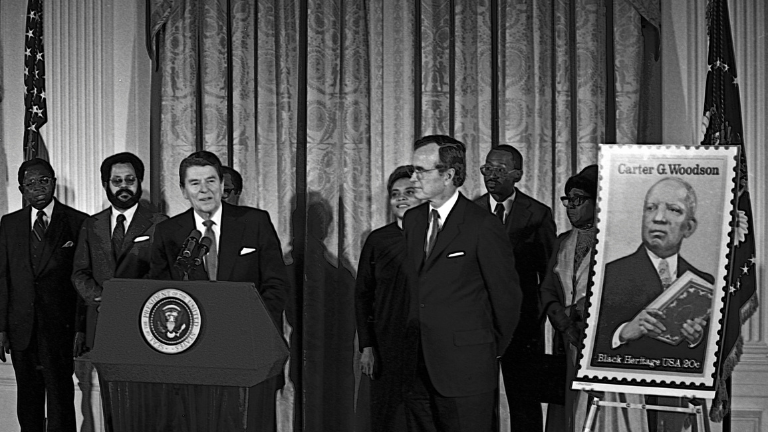Photo by: Elena Sunagatova/Getty Images
Black History Month is officially here!
At CLEO TV, where we represent the culture 24/7, Black History is celebrated every day. However, it’s important to truly understand what Black history and the month of February mean to the Black community.
Here’s a crash course on how Black History Month got its start, and one historian who truly pushed for the world to recognize our history!

Photo by: Bettmann / Contributor
Often called the “Father of Black History,” Carter G. Woodson was an American educator, historian, journalist, and author. He created the Association for the Study of African American Life and History, which established a safe space for Black Americans/scholars to conduct vital research and publish their findings.
This was in response to the overall frustration around the lack of public knowledge of the accomplishments of the Black community.
According to the NAACP, Woodson claimed that the white-dominated historical profession had little interest in Black history after being denied entry to American Historical Association conferences despite being a paying member.
According to the NAACP, black contributions were “overlooked, ignored and even suppressed by the writers of history textbooks and the teachers who use them.”
In response, Woodson created Negro History Week in 1926, taking place during the second week of February. Negro History Week was created to honor the various contributions of Black Americans that still play a significant role in US history.
“If a race has no history, it has no worthwhile tradition, it becomes a negligible factor in the thought of the world, and it stands in danger of being exterminated,” Woodson said in the Journal of Negro History in 1926.
Woodson chose the second week of February to serve as Negro History Week to commemorate two prominent figures in the advancement of Black people.
Woodson wanted to commemorate Frederick Douglass, who led the nation’s abolitionist movement, and Abraham Lincoln, who issued the Emancipation Proclamation, which proclaimed the end of slavery. Both of their birthdays are in February.
Due to a rising understanding of the Black past in the late 1960s, college students and educators campaigned for the extension of Negro History Week into a month-long event. Black History Month was adopted by educational institutions, community centers, and cultural institutions nationwide.
To “celebrate the too-often overlooked contributions of Black Americans in every field of endeavor throughout our history,” President Gerald Ford officially established Black History Month in 1976.
Following President Ford’s efforts, Congress declared February 1986 to be “National Black (Afro-American) History Month” by passing Public Law 99-244 in 1986.

Photo by: Mark Reinstein/Corbis via Getty Images
In accordance with this statute, February 1 would “mark the beginning of the sixtieth annual public and private salute to Black History.” The law also required the president to issue a proclamation urging Americans to honor Black History Month in 1986 by participating in the proper ceremonies and events.
Since then, other nations have followed suit including Canada, Ireland, and the United Kingdom, all observing Black History Month.
Join us as we honor our history and our truth all month long. TV One celebrates Black History Month this year by highlighting the Evolution of Black Sitcoms. Sit back, relax, and enjoy some of your favorite TV Onederland sitcoms every Saturday!
Like CLEO TV on Facebook and be sure to follow us on Instagram and Twitter.











